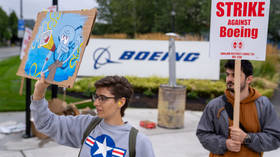A federal MP has called on the Reserve Bank to end surcharges on card transactions and tap-and-go phone payments which cost Australians $4 billion a year.
Jerome Laxale, a Labor MP who represents John Howard’s old Sydney seat of Bennelong, has launched a petition to end provisions that charge businesses to use card technology, with those fees then passed on to customers.
Mr Laxale said the surcharges were imposed at a time when card payments represented a minority of transactions, but now that they account for the bulk of payments, the rules should be reviewed, and called on Commonwealth Bank and Westpac to do something about it.
‘We’re in the middle of a cost of living crisis. Consumers are being charged blended rates, 1.1 per cent to 1.6 per cent and it all adds up. To consumers that’s around $140 a year,’ he told NewsWire.
‘Cash is down to 30 per cent, debit is the new cash. Why is it that we are still paying increasingly exorbitant fees each and every time that we present our card or we tap.’
His petition comes ahead of the RBA’s ‘holistic review’ of regulations around payments, including greater transparency around costs and how they’re being passed onto consumers.
The central bank’s Payments Systems Board is set to receive submissions in the next few weeks and begin consultations in December.
While Mr Laxale said he would prefer the RBA to end the payments, but if not he would push for government to step in.

Bennelong MP Jerome Laxale is pushing the RBA to scrap fees for digital card payments
‘I want the RBA to do what other reserve banks have done across the world, and legislate in favour of small businesses and consumers, because the inequity here doesn’t make sense anymore,’ he said.
‘The good times should come to an end for these banks and card issuers’.
Earlier this year, research from Canstar found Australians were paying $4 billion a year in card surcharges.
Year-on-year the amount increased by 6.4 per cent, or $400 million, due to the increasing costs of transactions caused by inflation.
Earlier this year, Mr Laxale grilled the bosses of the big four banks during a parliamentary inquiry, asking why a $5 coffee costs him $5.08 when paid via a debit card.
While debit cards incur under a 0.5 per cent payment fee for merchants, the fee can extend to between 1 per cent to 1.5 per cent for Visa and MasterCard credit cards, according to the RBA.

Bennelong MP Jerome Laxale said regulations around card surcharges were dated
Westpac boss Peter King acknowledged the rules were ‘confusing’ for customers, and said customer surcharge rates should be reviewed.
‘We really have to think about whether surcharging is worth it, because I’m not sure it’s driving the policy intent,’ he said.
‘There’s no other cost in a business that people get to surcharge.’
Commonwealth Bank chief executive Matt Comyn said he believed the $4bn figure was exaggerated, and said Australia had some of the lowest debit interchange fees in the world.
‘Generally, there is nothing ever that is free,’ he said.
‘Businesses are paying less by using electronic payments than by using cash … In this case, it really comes down to whether the lower costs of those inputs are being passed on to consumers.’




